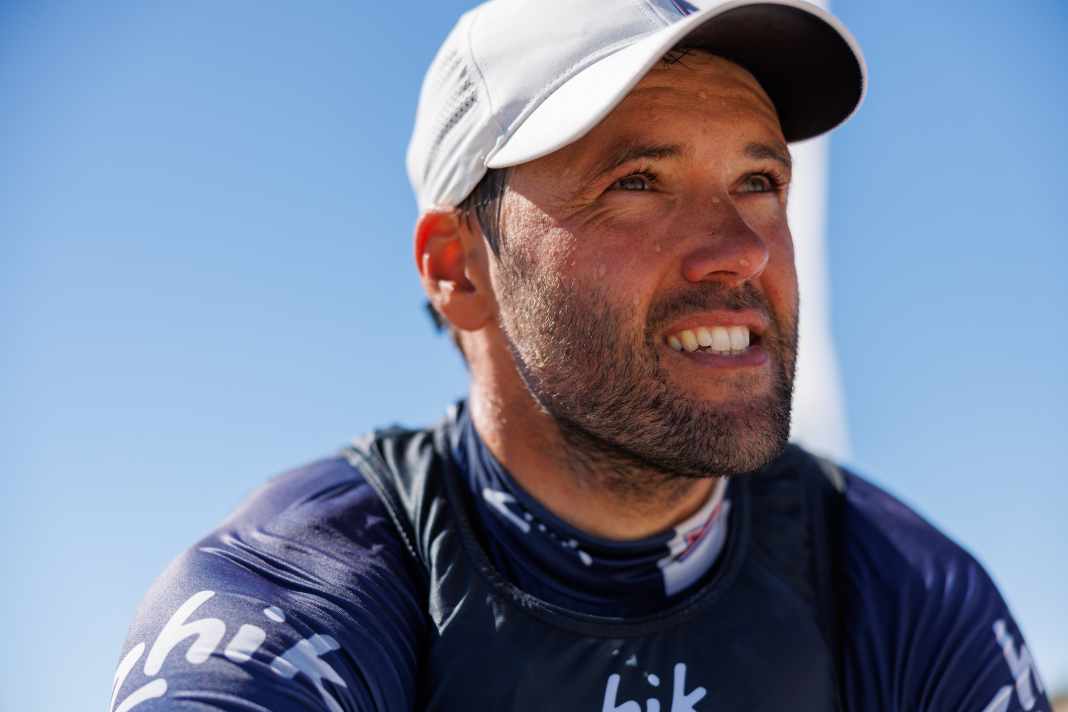





He is a world champion and holder of the Silver Laurel Leaf, the highest sporting honour of the Federal Republic of Germany. He has a total of four world championship medals in his collection and has been Germany's number one in Olympic Laser sailing for more than a decade. More mature and determined than ever, the Allgäu native is heading for his third Olympic Games.
The active spokesperson for the German Olympic sailors is enjoying the countdown to his first start on 1 August: "This final stage of preparation for the Olympic regatta gives me a very good feeling. When you can see crystal clear every day what you are working so hard for and missing out on so much in life, it's wonderful. It gives me new motivation and more anticipation every week. I want to savour that." The same goes for Kiel Week.
Strong field for Kiel Week
There, the Ilca-7 field in the Olympic year is strikingly stronger in terms of quality and quantity than all other Olympic disciplines. Buhl had lobbied the organisers to ensure that the Olympic half of Kiel Week - in contrast to other classic events for Olympic sailors, only five and not six days long - offers the Ilca-7 soloists more races per day than originally recommended by the World Sailing Association. This should ensure a veritable main round for the gold fleet of the Ilca 7 best instead of possibly just a meagre gold fleet racing day. In other words: there will be more good sport for the top people, who will therefore increasingly set course for Kiel.
Buhl forms a strong training group with coach Alex Schlonski, his highly valued sparring partner Nik Willim, the Norwegian Herrmann Tomasgaard and the French 2022 world champion Jean-Baptiste Bernaz. In May, they spent three weeks in the Olympic sailing area in the Bay of Marseille. Laser maestro Robert Scheidt joined them as a guest coach. The group turned over every stone ten times. One of the main topics was starts. They want to equalise the small lead that Briton Michael Beckett and Olympic champion Matt Wearn have built up over the past year. Buhl says honestly: "It's almost a two-class society at the top. But an Olympic regatta and an Olympic field have slightly different characteristics. The spaces are a little less tight, the field stretches a little further apart, speed counts a little more."
Buhl's narrow circle of Olympic medal candidates includes the rather extroverted Michael Beckett, who is strong in all conditions, the stoic Matt Wearn, the reinvigorated Herrmann Tomasgaard, "JB" Bernaz, the still dangerous two-time world champion Pavlos Kontides, the New Zealander Tom Saunders - and himself. Buhl knows what he needs on the way to a medal: "The unconditional will to win is the prerequisite. Then you have to be able to call on all the skills you've learnt in the Olympic week, but also not get carried away when it comes to delivering the free skate."
Buhl had to learn the hard way
That didn't work out at his Olympic debut in 2016: although already highly decorated with bronze at the 2013 World Championships and silver at the 2015 World Championships, Buhl sailed past the medal race in 14th place, shouted at the sky above Rio de Janeiro and at himself - and carried on working. Three years ago in Tokyo, the world looked very different. A blatant final day with 32nd place and a victory combined with third place in the medal race brought fifth place. Six points were missing a medal.
Will all good things come in threes for Buhl, who competes for the Alpsee-Immenstadt sailing club and the Norddeutscher Regatta Verein, at his third attempt this summer?
Buhl's home is the mountains
At the beginning of May, the 1.87 metre tall helmsman, who lives in Kiel, spent another four days recharging his batteries with his parents in Sonthofen. Whilst cycling in the mountains, he also passed the cradle of his childhood. The somewhat dilapidated old farmhouse in the hamlet of Sterklis is now uninhabited and is a listed building. The house didn't offer the Buhls and their three children much space back then. But outside in nature, there were endless adventurous play opportunities. The nearest piste was never far away for Buhl, who was a successful ski racer in his youth, and the Große Alpsee, where he learnt to sail from his father Friedl Buhl in his FD, was an increasingly tempting destination. When the top German athlete paused in front of Sterklis 8 on his bike tour in April, many fond memories flashed before his mind's eye. He thought briefly:
It's crazy that I was able to become what I am today from this small village"
What could distinguish his third Olympic start from the previous ones? "My overall knowledge is greater," says Buhl, the analyst. 18 years have passed since Buhl, a sports soldier, was first allowed to train with a national squad. Two years earlier, in 2004, during laser radial country training with the Bavarian squad, a team mate showed him Ben Ainslie's book "The Laser Campaign Manual", published in 2002. It tells how to win in the Laser. The book fuelled Buhl's Olympic passion and Ainslie's achievements fired him up. The current boss and skipper of the British America's Cup campaign Ineos Britannia was already a double Olympic champion at the time. He was the sailing hero of his time, having achieved his first fame in the Laser. Later, the young Philipp could spend hours studying videos of Ainslie's rival Robert Scheidt. Today, Buhl is a champion himself and enjoys the chance to learn from the class maestro because the NRV Olympic Team and his sponsor Marcus Brennecke made two special training sessions with Robert Scheidt possible in the Olympic year.
"Robert is extremely detail-orientated, has a very precise plan for tactics and positioning and expresses his opinion clearly," says Buhl. Scheidt, on the other hand, admires Buhl's unique strong wind game and now also attests to the German's high performance in lighter winds, who is appreciated in Ilca circles as a fair player and sometimes very vehement fighter for the class. "Considering the fact that you are slightly heavier than Beckett and Wearn, you are also surprisingly competitive in lighter winds," Scheidt recently told Buhl. It sounded like an accolade. "And who should you believe if not a nine-time world champion," says Buhl with a grin.
But Buhl, like Germany's most successful Olympic sailor Jochen Schümann, knows that there will never be perfection in the sport of competitive sailing with its endless possibilities. Especially not in the hotly contested world elite of the 4.23 metre long Ilca 7 standard dinghies, which have been an Olympic sport since 1996. There is only the eternal quest for improvement.
And so Philipp Buhl will continue to work until the Olympic summit assault. His plan for the six days in Marseille in the Mediterranean picture-book area around the former pirate island of Île d'If sounds simple, but it's not: "I'll try to concentrate on delivering what I've learnt."

Tatjana Pokorny
Sports reporter

